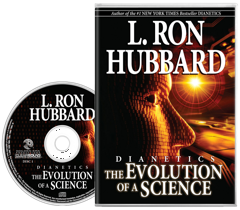All about Dianetics
Wiki Article
The Definitive Guide for Dianetics
Table of ContentsDianetics Things To Know Before You Get ThisDianetics Things To Know Before You BuyHow Dianetics can Save You Time, Stress, and Money.The Only Guide to Dianetics
I couldn't ever before not intend to obtain anything that enters your mind for you- if it was otherwise, I would not be resting right here with you, doing this. I not only can never have a problem, or otherwise wish to hear something that enters your mind for you, but I'm entirely excited to know every concept, every thought, every image or sensation that emerges or shows up for you- don't ever before believe or else, and if for one reason or another you do, please just allow me understand! Often, you may have an idea, and picture, concept or occurrence pop up that does not appear to answer the question, or connect to it, yet nonetheless, constantly do tell me concerning it, and as we proceed, the relevance will arise for you.This is intrinsic in the basis of handling, and the subject of this discussion: the standard roles of the counselor and the customer: The basic function of the therapist is, unlike "typical training", not to control, which indicates to enforce and/or prevent, yet to instead work from the basis of EMPOWERING THE CUSTOMER.

The Buzz on Dianetics
John Mcmasters revealed this fundamental fact wonderfully well in among his talks on Power processing, wherein he describes just how he was asked what this "special knack" was that he had for providing such fantastic sessions; he needed to consider that for a moment, and found that it was what he had not been doing, as well as what he was doing: he wasn't reviewing, evaluating, computing, or actually, creating any kind of thoughts, not to mention spoken expressions, after offering the command and while waiting for the PC to complete their response to their satisfaction; he was, simply and only, existing with the PC, and totally interested.The function of the counselor, demonstrated; that was his "unique knack". I have actually had my more helpful hints own experience which taught me this well, really early on in the video game. In 1982, having actually lately finished my training and internship on New Age Dianetics, I was running this on a PC, and there was a point in the session where (being a little bit damp behind the ears not yet having several hours under my belt as a professional auditor) the PC seemed to be "taking too lengthy" to express anything verbally after I offered him a command.
This trick ended up being one of the most beneficial payment that John ever made to the topic of therapy or bookkeeping (Dianetics). In my simple opinion, it is the best contribution that anybody has actually ever made to these subjectsthe application is totally non-judgemental, non-evaluative, and devoid of any kind of recommendation, recommendations or opinion.no preconceived agenda for individuals, or 'levels' that they have to do
In Idenics, the only resource of information concerning a client is the specific client. In Scientology we prided ourselves on not evaluating for individuals. However all More Help that actually suggested was that the auditor did not VERBALLY evaluate for the PC in session. The registrars and principles police officers examined for the computer.
Dianetics Fundamentals Explained

Anyone that had ever before seen John audit can not assist however notice a distinct quality in his auditing."The customer's basic function is to be there with the purpose of relocating in the instructions of their spiritual goals, and to easily and totally reveal and experience whatever manifests for them in answering the inquiries and carrying out the instructions in the processing.
This is something to procedure as required. Also, people regularly have prior experience and/or indoctrination in auditing/processing which, in some methods, and to some levels, in fact misdirects them into attitudes, concepts and habits patterns that prevent the complete awareness of these roles, and so they will often tend to hinder the expressing of what comes to mind, as in the examples offered above - Dianetics. * The very first, and probably foremost instances of mis-indoctrination recommended you read leading to less than completely smooth and reliable sessions, can be located in specific elements of the training regimens, or "TR's":"TR's" are commonly an individual's very first, or at the very least early, experience in Scientology, and while I will take place to clarify what I see as the defects in idea and practice, nonetheless, often tend to be greatly therapeutic, done as they are offered (Hubbard urges that "TR's are not refining, they are educating", yet factually, they are both handling AND training)
There is no "flunking", and no rejection of the fact of this being handling. The focus, as it needs to be, is on experiencing the other individual's presence.
The Only Guide to Dianetics

Report this wiki page